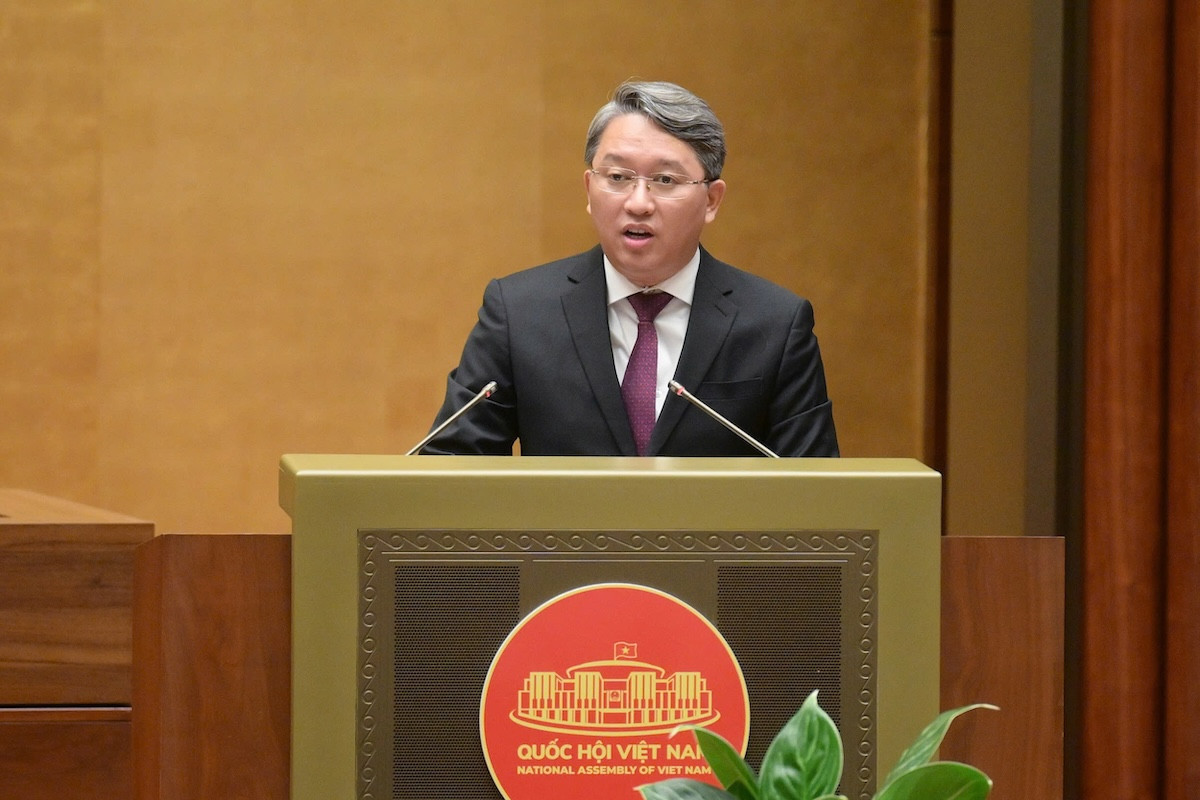Vietnam's National Assembly has officially passed the revised Penal Code with 429 out of 439 attending lawmakers voting in favor, two against, and eight abstaining.

Minister of Justice Nguyen Hai Ninh. Photo: National Assembly
Under the revised law, the death penalty has been abolished for eight offenses. These include: activities aimed at overthrowing the people’s government (Article 109); sabotage of physical and technical infrastructure (Article 114); production and trade of counterfeit medicines for treatment or prevention (Article 194); illegal transportation of narcotics (Article 250); crimes of aggression and war-making (Article 421); espionage (Article 110); embezzlement (Article 353); and bribery (Article 354). These crimes will now carry a maximum sentence of life imprisonment.
According to the new provisions, any death sentence issued before July 1 for the aforementioned crimes that has not yet been carried out will be converted to life imprisonment, as determined by the Chief Justice of the Supreme People’s Court.
In a report explaining the revisions, Minister of Justice Nguyen Hai Ninh stated that the reduction in capital punishment aligns with the Party's directive to progressively narrow the scope of the death penalty.
Minister Ninh noted that Vietnam has steadily reduced the number of capital crimes over the years: from 44 in the 1985 Penal Code, to 29 in 1999, 22 in 2009, and 18 in the 2015 revision.
The government representative explained that the decision to abolish the death penalty for these eight crimes was based on careful analysis of the nature and severity of the offenses, the value of the interests protected, and the potential for remedying the harm caused.
He also pointed out that although some crimes are technically punishable by death, the penalty has not been applied in practice in recent years.
Minister Ninh emphasized that globally, there is a declining trend in the use of the death penalty. Of the 193 United Nations member states, only about 50 retain capital punishment in their legal systems.
As a signatory to international treaties, particularly Article 6(2) of the International Covenant on Civil and Political Rights, Vietnam is expected to limit the death penalty to the most serious crimes.
This legal change also supports Vietnam’s expanding international cooperation efforts. As the country deepens its global integration, having a legal system that aligns with international standards helps foster stronger and more trustworthy international relations. It also reflects the capabilities and responsibility of Vietnam’s legal and regulatory institutions.
Given these considerations, the government found it appropriate to abolish the death penalty for the eight crimes listed in the newly revised Penal Code.
The Vinh